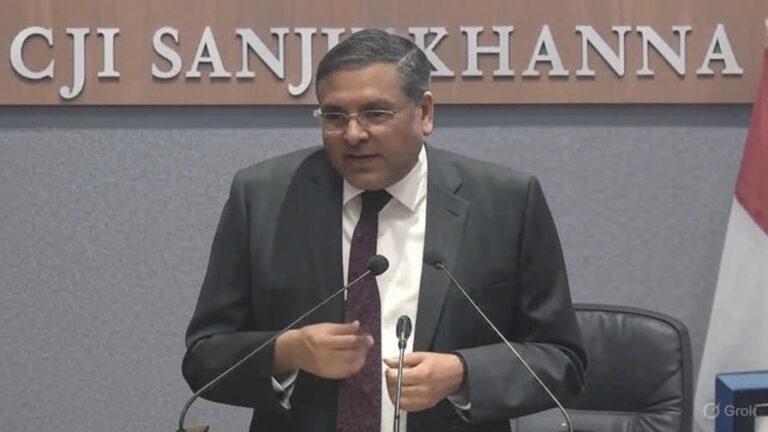Justice Sanjiv Khanna, during his six-month tenure as the Chief Justice of India (from November 11, 2024, to May 13, 2025), established a legacy of unwavering commitment to the Constitution. Known for his quiet but firm decisions, he tackled some of the most challenging constitutional issues without seeking the spotlight.
CJI Khanna's first major challenge was handling petitions questioning the inclusion of the words "secular" and "socialist" in the Preamble of the Constitution through the 1976 amendment. Rejecting the argument that secularism was artificially introduced, he ruled that secularism was always an inherent part of the Constitution. He emphasized that the amendment merely made an implicit idea explicit.
Read Also:- India and Pakistan Agree to Immediate Ceasefire After ‘Operation Sindoor’
“The secular ethos is a core value of the Constitution,” stated CJI Khanna, reinforcing India's commitment to religious harmony.
Amidst rising communal tensions in 2024, fueled by court-ordered surveys of mosques allegedly built on Hindu temples, CJI Khanna's bench intervened decisively. His December 12 order barred trial courts from entertaining new suits against religious places, preserving communal peace.
The Waqf Amendment Act 2025, a politically sensitive legislation, faced scrutiny under CJI Khanna’s leadership. Despite nearing retirement, he led a detailed hearing, questioning controversial provisions that threatened the autonomy of Waqf properties. His intervention led the Government to halt the implementation of the contentious sections.
CJI Khanna also managed two sensitive judicial scandals during his tenure. One involved Justice Shekhar Kumar Yadav, who was censured for making communal remarks. The other was the Justice Yashwant Varma cash scandal, where CJI Khanna acted transparently by making inquiry reports public, maintaining the judiciary's credibility.
CJI Khanna safeguarded individual rights against arbitrary arrests, particularly in cases involving tax laws. His landmark judgment in the Radhika Aggarwal case curbed the misuse of arrest powers under the GST and Customs Acts.














